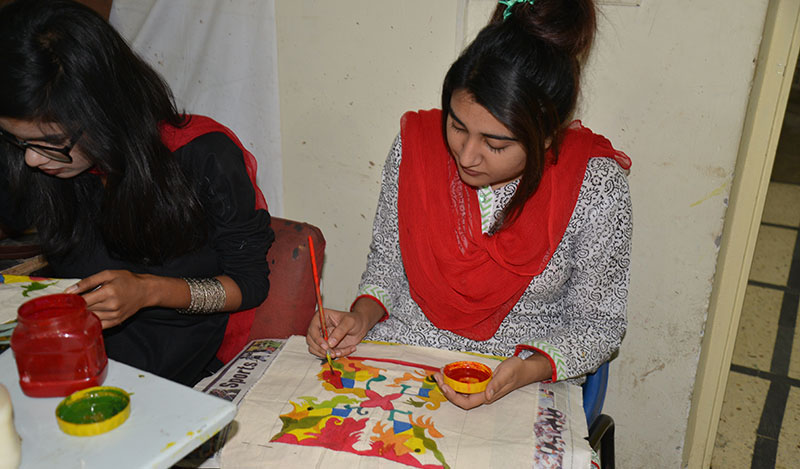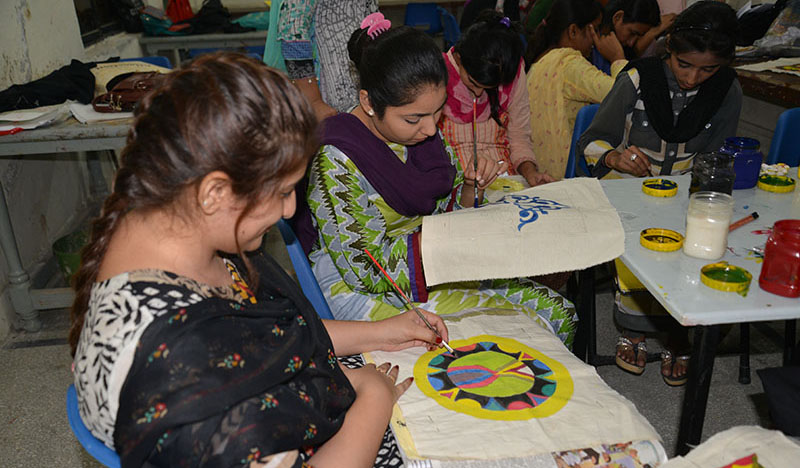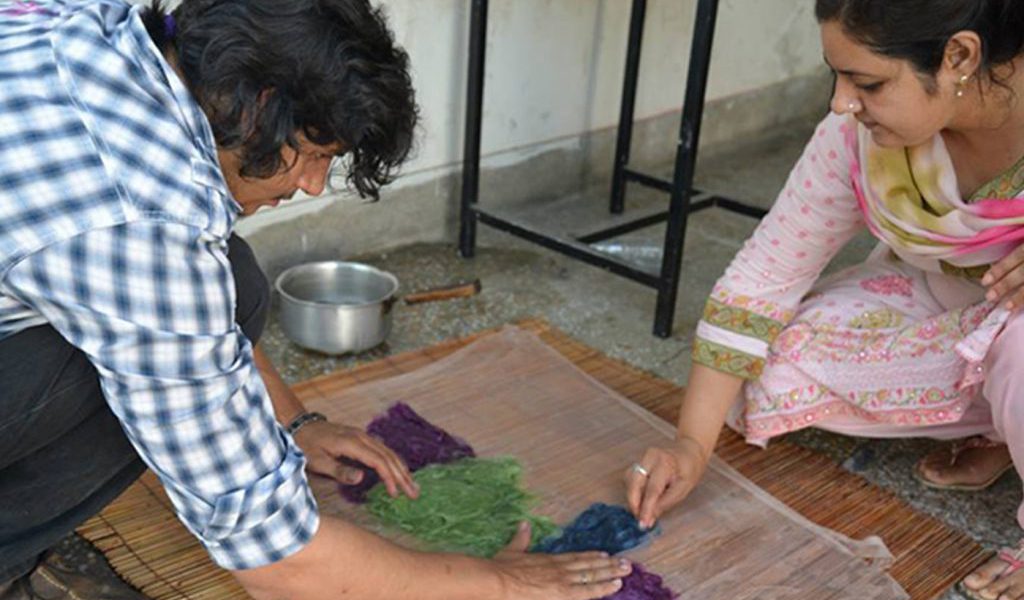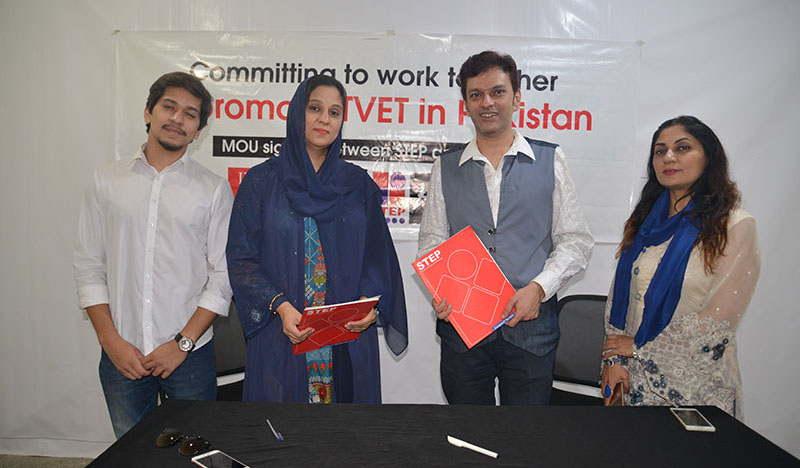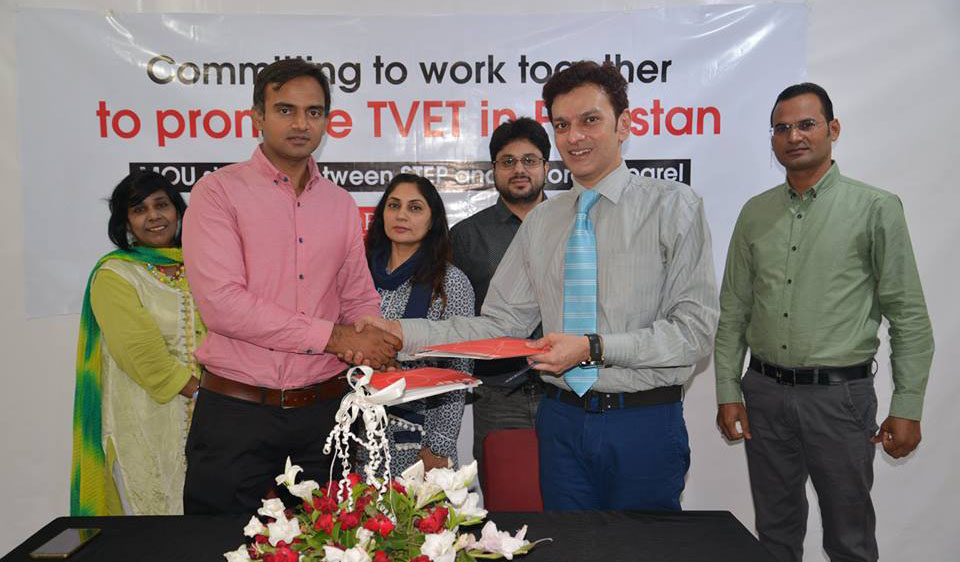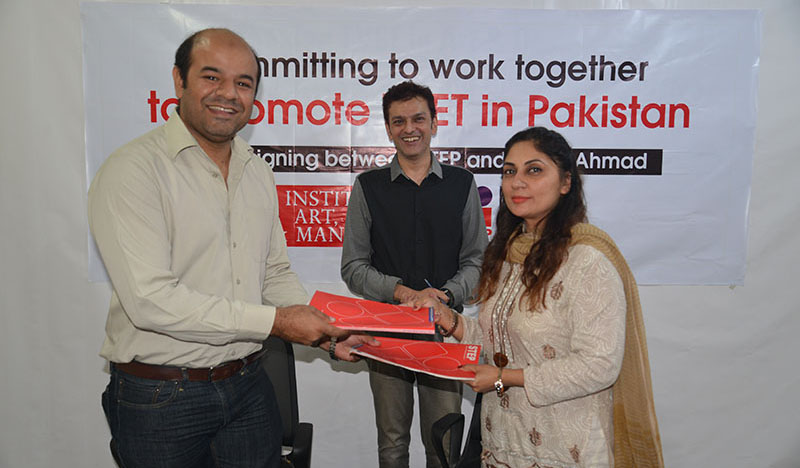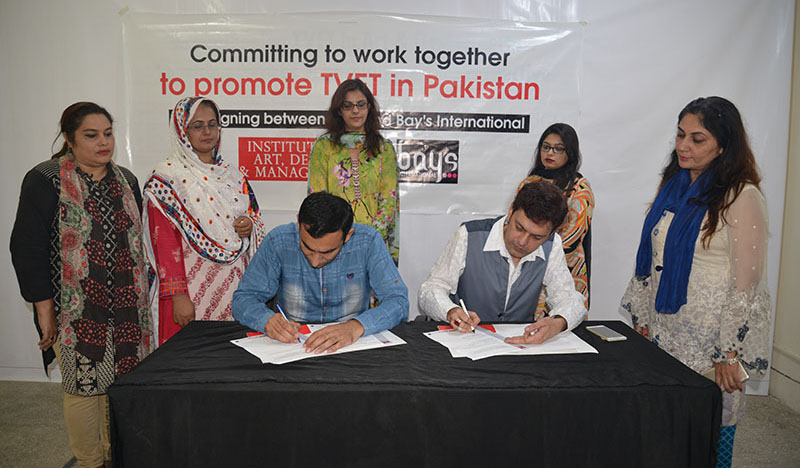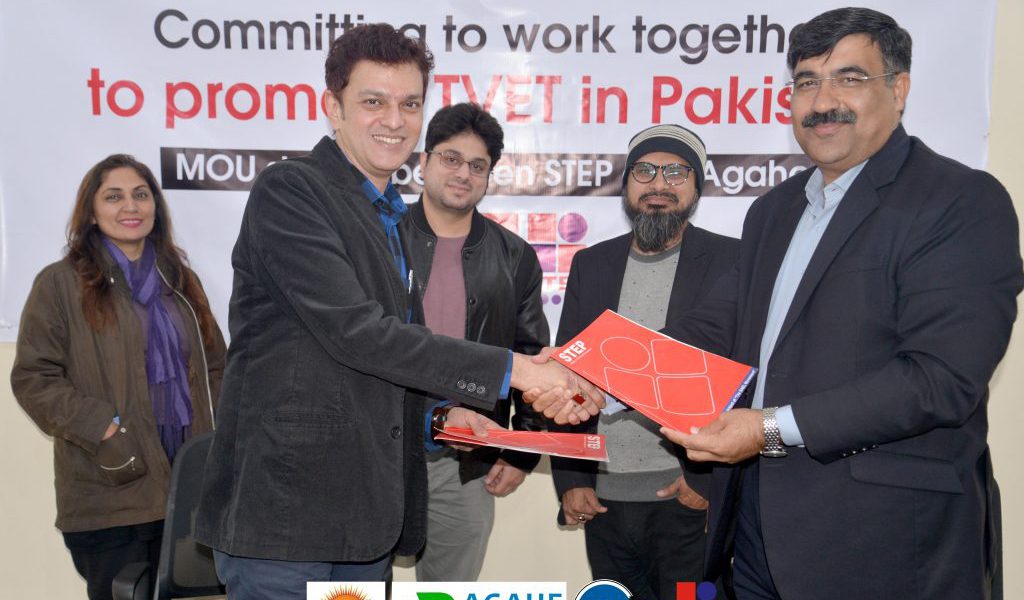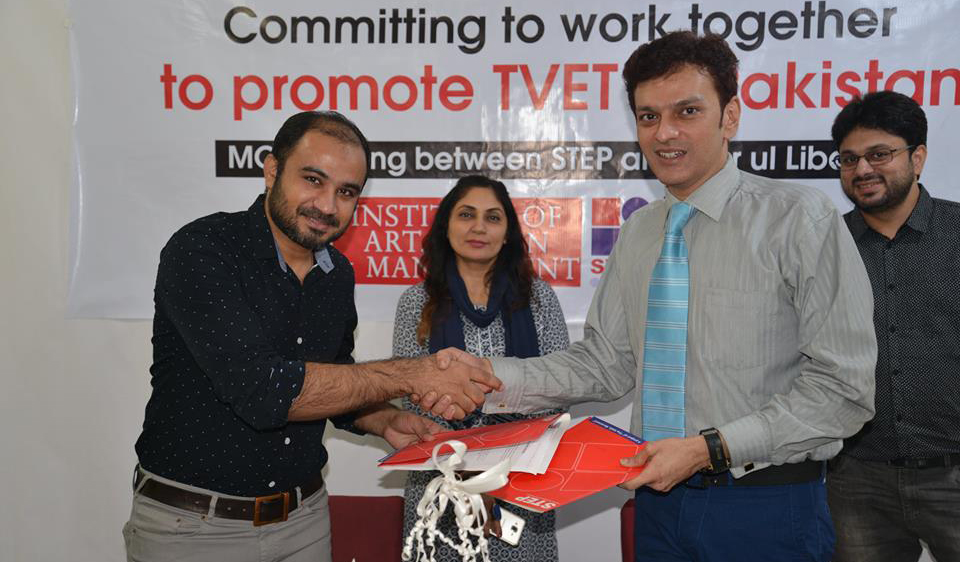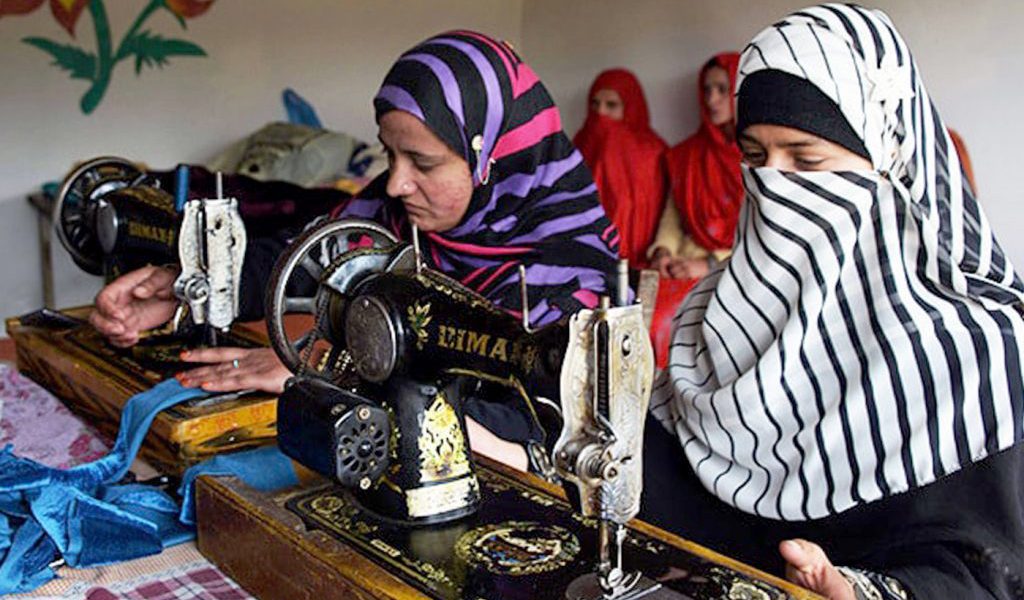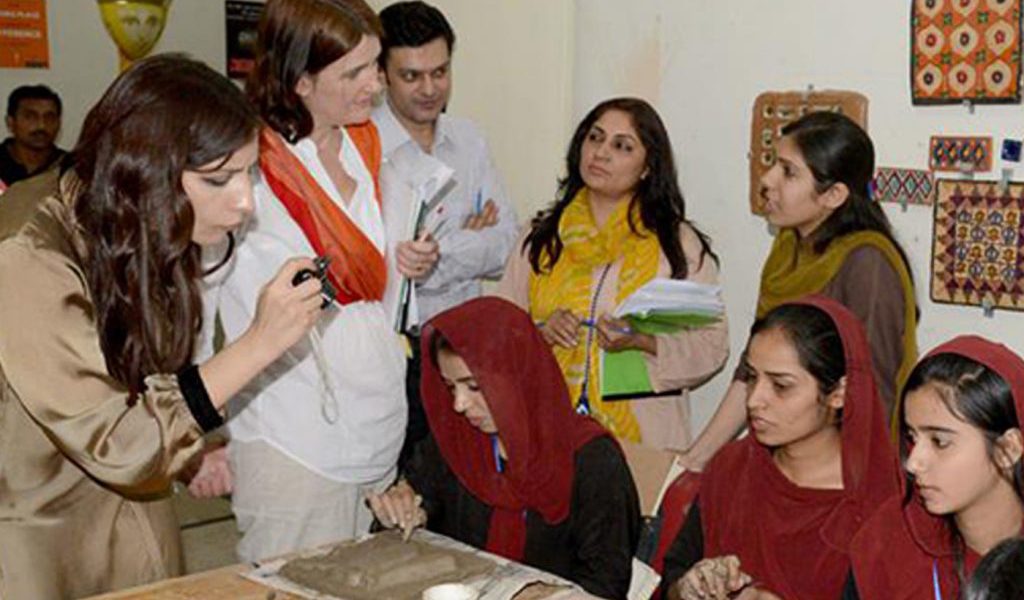Vocational Education & Training (VET)
Vocational education and training
Identifying essential industry skills and competencies remains central to SSDF’s supported vocational education and training courses. The SSDF Training Need Analysis (TNA) is the continuous process that runs throughout the year . It greatly helps in identifying the training and development needs for any subject trade. It also helps the R&D section to propose new training areas and activities. Moreover , With a strong focus on practical application, TVET courses cater to a diverse range of learners, from recent graduates seeking immediate job opportunities to professionals aiming to upskill and stay relevant in an ever-evolving job market. SSDF providing vocational skills development courses according to the need of the hour so people can compete globally .
SSDF Collaboration with industry
We act as a link between vocational education and training providers and the business world. Our sister organizations, STEP Institute of Art, Design & Management and Melange Institute & Beauty Lounge, actively assist in the delivery of vocational training programs. We establish Memorandums of Understanding (MOUs) with industry players and stakeholders to define shared expectations and subsequently ensure the implementation of agreed-upon strategies.
One of the main objectives of the SSDF is to develop industry liaisons in order to understand and address the various needs of a skilled workforce as stated by employers, trade unions, chambers of commerce, industry associations, government agencies, business enterprises, and individual entrepreneurs. This program aims to accomplish a number of goals, including matching training to the skill sets needed by the regional industry, maintaining cost effectiveness for both students and training providers, facilitating immediate job prospects, encouraging entrepreneurial opportunities, and opening the door for future training options.
Benefits of Vocational education and training
- Practical Skills: VET equips individuals with hands-on skills and expertise relevant to specific industries, enhancing employability.
- Job Readiness: Graduates are better prepared for the workforce, as VET programs focus on real-world applications and workplace scenarios.
- Employment Opportunities: VET often leads to direct job placements due to its industry-specific focus and practical training.
- Career Advancement: VET can provide a pathway to higher-level qualifications and career progression within a chosen field.
- Industry Relevance: VET programs are designed in collaboration with industries, ensuring graduates meet industry needs and standards.
Advocacy for VET
We collaborate with Pro TVET institutes to select suitable trainees and gather candidate data using various methods such as focus groups, surveys, and social media campaigns. Our efforts have led to successful enrollment of numerous trainees in Central and South Punjab.
Following are the vocational courses list that SSDF offers :
- Fashion Design Pattern Drafting & Cutting
- Pattern Drafting & Grading
- Domestic Tailoring
- Dress Design
- Production Techniques
- Fashion & Clothing
- Textile Design
- Computer-Aided Designing (CAD / CAM)
- Graphic Design (Print Media)
- Short Film Making
- Computer Motion Graphics
- 3 D Design
- Interactive Media
- Creative Media Production
- Computer Business Management
- Computer Application
- Auto CAD (Civil Draftsman)
- Beauty Therapy
- Hair Styling
- Jewelry Design
- Design & Craft
- Fine Arts
- Social Media Marketing Specialist
Social Inclusion Of Vocational education and Training
We are proud to be focused and determined to raise the flag of inclusiveness for all the SSDF activities. The three different scholarships being offered at various projects of STEP are also advocated through the platform of SSDF, which aim to serve the marginalized communities, including the minorities (specifically the Christian community living in identified vicinities and suburbs), young people with low financial support available for their career training, and less privileged yet very talented youth of Gilgit-Baltistan region. Moreover, SSDF also providing free courses to deserving .
A lot of these awareness activities are done in collaboration with several reputed organizations and societies that are working to enhance the quality of life of marginalized groups and communities. The Christian Fellowship of Pakistan, for instance, greatly help us in approaching the Christian minority groups, The Aga Khan Foundation and local practitioners support us in accessing the trainees in the Gilgit-Baltistan region. Pakistan Poverty Alleviation Fund (PPAF) has also been our partner to advocate and train women representing low-income groups in Southern Punjab as well as selected areas in Khyber-Pakhtunkhwa province.
Social Engagement Of TVET
We take immense pride in our unwavering commitment to champion inclusivity across all SSDF initiatives. Through the SSDF platform, we also promote three distinct scholarships offered across various STEP projects, aimed at benefiting marginalized communities. These scholarships are designed to support minority groups, specifically the Christian community residing in identified areas and suburbs, financially disadvantaged young individuals seeking career training, and exceptionally talented youth from the Gilgit-Baltistan region who face socio-economic challenges.
Our collaborative efforts extend to partnering with esteemed organizations and societies dedicated to enhancing the well-being of marginalized groups. Notably, the Christian Fellowship of Pakistan plays a significant role in engaging with Christian minority groups, while the Aga Khan Foundation and local practitioners facilitate our outreach to trainees in the Gilgit-Baltistan region. Additionally, our partnership with the Pakistan Poverty Alleviation Fund (PPAF) has been instrumental in advocating for and providing training to women from low-income backgrounds in Southern Punjab and select areas within the Khyber-Pakhtunkhwa province.
Recognition of Prior Learning (RPL)
We undergo the process of RPL, wherein we recognize the individual’s previous learning to meet the necessary standard of current competencies. This recognition of skills allows the individual to gain global recognition, and we provide them with the appropriate certification. . RPL usually refers to a process that examines evidences of past learnings and experiences. RPL Allows:
- Certification for unrecognized skills
- National/International acceptance of certified skilled workforce
- Improved access to recognized courses, vertically and horizontally
- Apply for higher positions in the workplace
As an integral component of STEP, the STEP Skills Development Foundation (SSDF) strongly emphasizes the significance of Technical and Vocational Education and Training (TVET) in Pakistan. Recognizing that we possess the world’s second-youngest population, we perceive the potential to provide the global workforce with skilled professionals as a substantial advantage and a strategic opportunity for our nation’s prosperity. Moreover, the recognition of Prior Learning (RPL) has paved the way for numerous Pakistanis who possess valuable skills and training, yet lack formal credentials and certificates. Formal acknowledgment now enables these skilled individuals to access opportunities not only within the country but on a global scale as well.
We take immense pride in being pioneers in Pakistan for introducing Recognition of Prior Learning (RPL) programs up to the undergraduate level. Additionally, our close collaboration with the National Vocational & Technical Training Commission (NAVTTC) of Pakistan underscores our commitment to promoting and implementing RPL initiatives within the first two levels of the National Vocational Qualification Framework, encompassing trades such as Dress Designing and Beauty Therapy.
Competency-Based Training (CBT)
Competency-based training (CBT) focuses on practical achievements in a professional setting, gained through course completion or workplace experience. This method, also referred to as competency-based learning, stands as the globally acknowledged instructional framework for vocational education. In the late 1980s, it originated and was introduced in developed nations such as Australia, New Zealand, and Europe.
This approach empowers learners for excellence in industry-aligned tasks through essential skills, knowledge, and mindset. Notably, the distinguishing factor of competency-based training lies in its non-time-bound nature. As a result, participants can complete their training swiftly, outpacing traditional time-dependent learning structures.
Within the realm of Pakistan, we have taken a pioneering role in introducing and implementing CBT. We consider it crucial to extend our expertise to fellow institutions and individuals in both the public and private sectors .Moreover, Our partnership with GIZ involves consulting and contributing to nationwide training of educators, administrators, and practitioners.
Our Journey to Transform Lives
At SSDF, we drive a powerful vision aimed at igniting positive change through education.
Unwavering commitment and passionate advocacy for equitable access to quality education have characterized our journey. With this in mind, the dedication to granting every child the chance to learn, grow, and achieve their dreams is exemplified through our skill development institute.
We’ve connected with underserved communities, establishing secure learning spaces and providing empowering freelance training for children. Additionally, our dedicated team of educators, volunteers, and supporters work hand in hand. Furthermore, we are also currently engaging in Environment Sustainability, Gender Equality, and Cultural Preservation projects to contribute to a better environment
You can join the SSDF training program courses after 10th standard , A Levels , O levels , Intermediate , Bachelors and Master’s Degree .

